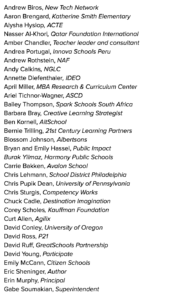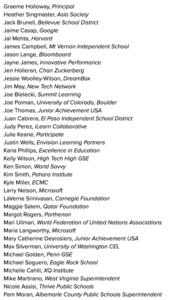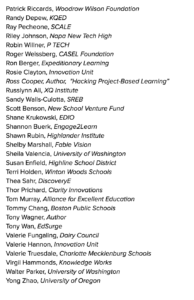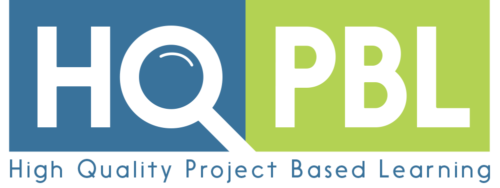Why?
All students, no matter where they live or what their background, deserve access to high quality Project Based Learning (HQPBL). This enables students to master academic content and skills, develop skills necessary for future success, and build the personal agency needed to tackle life’s and the world’s challenges. For more on evidence and research supporting PBL, download Defining High Quality PBL- A Look at the Research.
How?
Various models and guidelines for designing PBL have been created by experts and organizations in recent years. These are typically written from the perspective of the teacher. Therefore, effective PBL educators around the world are designing projects using a variety of different tools and frameworks. While ‘how’ PBL educators design and implement PBL in their settings may vary, consistently we all ought to be striving for high quality PBL student experiences.
What?
At the present time, however, there is a lack of agreement about what makes a student PBL experience truly high quality. Without a shared, learner-centered vision of HQPBL, it is difficult for educators to know how to use PBL to improve student experiences, learning and development.
The Framework for High Quality Project Based Learning is based on the accumulated experience, wisdom, and research of hundreds of educators who have graciously shared their ideas and critique. It describes six criteria, each of which must be at least minimally present in a project in order for it to be judged “high quality.” The presence of a criterion, however, is only a beginning. Each criterion can be judged in turn as to the quality of its implementation. Projects that are the most memorable, and that have the greatest impact on student learning and development, will be those with the highest quality implementation of each criterion. The Framework for High Quality Project Based Learning is intended to stimulate reflection and conversation about ways that projects can be improved and deepened.
The People
This project was supported by the Project Management Institute Educational Foundation and the William and Flora Hewlett Foundation, the Buck Institute for Education facilitated the development of the Framework for HQPBL. The development of the Framework took twelve months and was a highly collaborative and iterative process.
The heart of this effort was collaboration because in order to create an exemplary, co-defined understanding, we needed to recruit the voices of the best and the brightest from the world of PBL. The most vital group leading the HQPBL effort are PBL educators around the world—so get involved!
If you’d like to chat with someone from the HQPBL team, please contact hqpbl.org@gmail.com.
Steering Committee
HQPBL was led by a talented and inclusive steering committee of 27 members who represent a variety of stakeholder groups, from practitioners to prominent thought leaders. There are members from all over the world including the US, Finland, Chile, Korea and China. The Steering Committee was responsible for the initial ideas behind the Framework. They also collected feedback from the public, from teachers and other organizations to help the team adapt the Framework. Their contributions and commitment to the Framework are not reflective of their entire organization’s beliefs or endorsement.
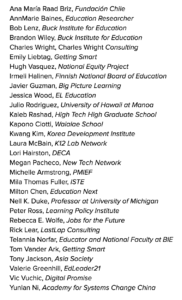
Advisory Group
The campaign was also aided by an advisory team, a diverse collection of 90 thinkers, leaders and practitioners helping to shape the Framework. The Advisory Committee made invaluable additions to feedback sessions and communication campaigns.
